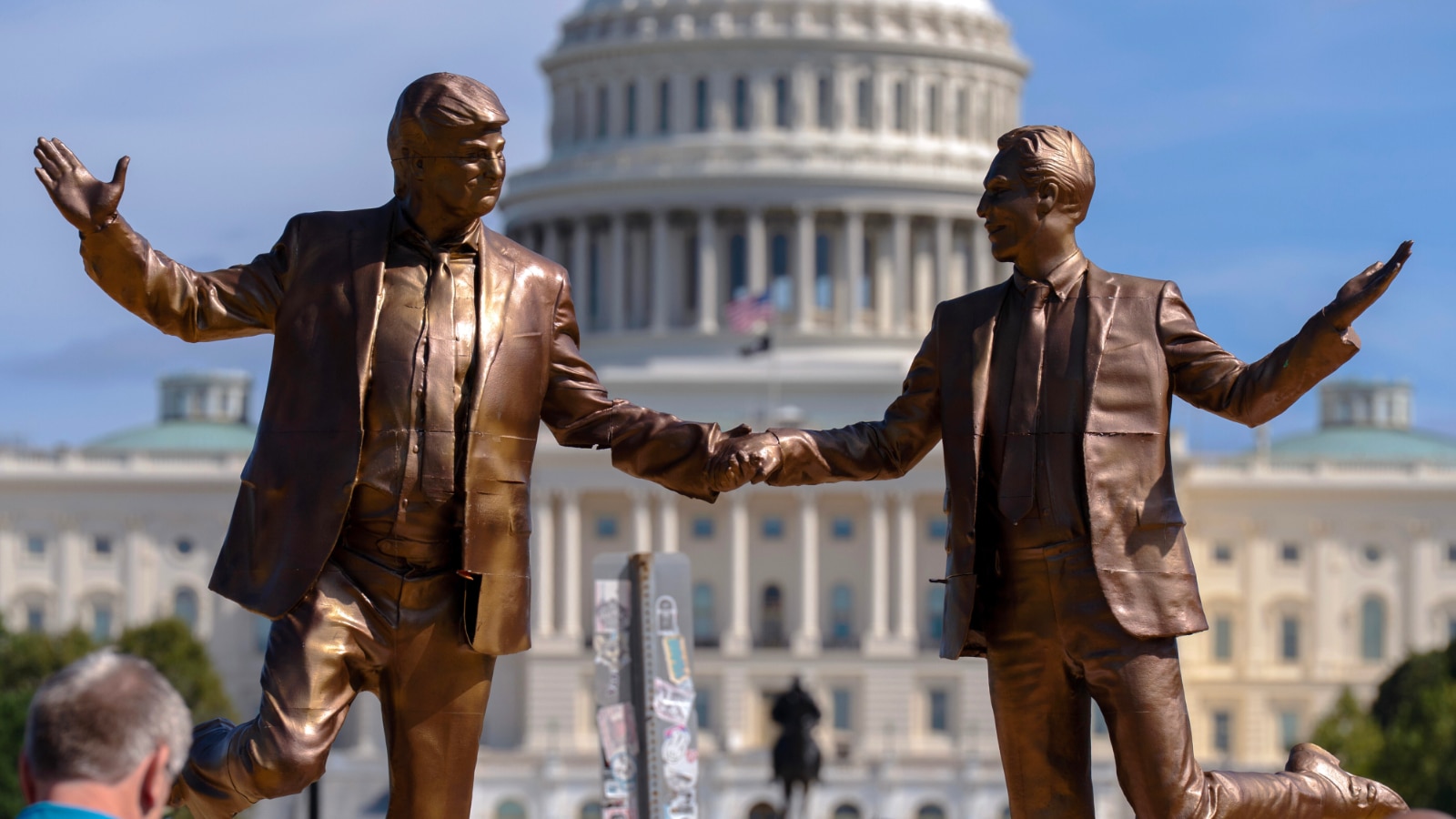The lights went out, but the fans didn’t budge. When they returned, high winds caused sideways rain. Even by CONCACAF’s lofty standards, the weather in Managua during Nicaragua’s World Cup qualifier against Haiti last month was brutal.
“It was pouring rain,” Haiti defender Duke Lacroix recalls. “The fans were going crazy with every thunderbolt. At one point it was raining so hard, I couldn’t see where the goalkeeper was taking the kicks.”
But Nicaraguan supporters were unfazed.
“The lights went out, and the crowd got crazier,” Lacroix said. “We came back, and no one moved anything. Everyone is still there.”
However, despite the difficult conditions, Lacroix and Haiti sent fans home soaked and dejected. Lacroix assisted the final goal in Haiti’s 3-0 win.
“In order to compete on the road, you have to take pride in silencing that vibe,” he said.
When Haiti hosts the final World Cup qualifying match on Tuesday, the atmosphere will be much calmer than I encountered on three trips to Central America.
In March 2024, gangs took over Haiti’s old national stadium, Estadio Silvio Cator, and the Haitian Federation issued a statement confirming their loss of ownership of the facility and confirming acts of vandalism. No events have been organized there since then, and it is not clear if or when it will be able to host important matches again. This leaves Haiti without an approved location, even if peace is achieved.
The country is witnessing violence as gangs fill the power vacuum left by the assassination of President Jovenel Moise in 2021. The United Nations High Commissioner for Human Rights described the situation as a “never-ending horror story,” and that organization’s report issued in July 2025 indicated the displacement of more than 1.3 million Haitians, with 85% of the city of Port-au-Prince under the control of gangs.
“People are fleeing their homes,” said Don Didson Lucius, an FC Dallas player and national team striker who grew up near Toussaint Louverture Airport in Haiti’s capital. Planes landing there in November 2024 came under fire, leading to an FAA ban on US flights. He still has family in that area.
“They can’t live well, all the places are closed because of the gangs, and the violence is crazy,” Lucius said.
Curaçao, a Dutch Caribbean island, will become Haiti’s temporary home this fall, with Thursday’s game against Costa Rica and Tuesday’s match with Nicaragua at Ergilio Hato Stadium in the capital, Willemstad, more than 500 miles away from Haiti.
To put Grenadiers In the same category as teams like Ukraine, Palestine, Belarus and Israel as a country trying to reach the 2026 World Cup in North America without being able to play on home soil and the advantages that come with that. In order to qualify, Haiti needs to finish second in its group and obtain more points than at least one of the other runners-up in the other groups; He currently has five points, and two wins may be necessary to raise his tally to 11 points to qualify for the 2026 Canada-Mexico-USA finals.
However, Haiti’s players are determined to return to the World Cup finals, which they believe could change things not only for Haitian football, but for the country itself.
In World Cup qualifiers, the atmosphere is the big equalizer.
Bolivia is in the continental qualifiers to qualify for the World Cup in part because teams need the highest possible point, El Alto’s Villa Ingenio stadium, 13,615 feet above sea level, to take advantage of the altitude. Even repeat playoffs are not immune to the temptation of trying to make life miserable for a rival team. The US men’s national team scheduled its match in February 2022 against Honduras in St. Paul, Minnesota, and won 3-0 in a match in which the temperature at the start of the match was 3 degrees. Yes, that’s Fahrenheit.
The last time Haiti was able to play a national team match on home soil was in July 2021 when it welcomed Canada in a World Cup qualifying match ahead of the 2022 tournament.
Even that was controversial, considering that Belize visited the country in March for a World Cup qualifier and was shocked when a group of armed men on motorbikes intercepted her bus heading from the airport to the team hotel. They were eventually allowed safe passage to their hotel, but only left for the match, training beside the hotel pool after the scare.
“No human being wants to go through something like that with machine guns pointed at you,” Belize captain Dion McCauley said after the incident. “You only have one life to live, and not knowing if you’re going to survive a scary moment like that? It’s shocking.”
The team’s four-year absence means players who are eligible to play in Haiti but were born abroad have been called up, with as many as twelve of this month’s squad representing the country without having the chance to feature in front of a stadium full of Haitians.
“I’ve never played in Haiti before, but all the players I talked to who played in Haiti told me that having your fans and your country behind you makes a big difference and you really feel it,” said Garvin Mitosala, a Quebec-born defenseman who made his Haiti debut in 2022. “I think I feel like we’re all used to that now, not playing in front of our fans. I don’t think we can use that as an excuse anymore.”
As the situation continues to deteriorate in Haiti, some leaders in the country believe football must return. The sport gives society an emotional boost, and gives young people work that allows them to support their families — just another economic alternative to joining a gang, says Marie-Elise Aubas, secretary general of the Haitian Football Association, the country’s leading association. Haiti’s first division league kicked off last weekend with teams from the capital participating after several special tournaments that included only clubs from other regions of the country where gang violence was not widespread.
“It’s not that things are actually getting better, but we’re trying to find a way,” Opas said. “In Haiti, we have a lot of insecurity, but we still need to live.”
Before the final round of World Cup qualifiers, which began in September and ends next week, Haiti’s coaching staff and players were dreaming of returning home to play matches in front of their fans. As the crisis worsened in the country, this was not possible.
In addition to losing Haiti domestic support and competitive advantage, it also hurts the coffers of a team that is already cash-strapped compared to most of its rivals.
“The national team is forced to play its matches away from home, which leads to significant losses in revenue,” Obas noted.
The longer a team is unable to play safely at home, the more revenue will be lost. In addition, with many industries suffering during the crisis, Obas said the list of potential sponsors for local clubs and the national team is getting shorter and shorter.
However, the strong relationship between the national team and its fans remains.
“Obviously, for the fans and for me as a coach, I would like us to be able to play in Haiti. Unfortunately, that is not my specialty now,” said coach Sebastien Migne, adding that he had encouraged the federation to choose an alternative location with a large Haitian diaspora. Canada (especially Montreal), the United States (especially Miami), and the neighboring Dominican Republic all tick this box.
But even sites like these have become fragile for Haiti. At times, football has managed to overcome political tensions, with clubs in the Dominican Republic hosting teams from Haiti in international competitions for long periods of time. Jamaica recently opened its doors as a training base for the Haiti Under-17 team ahead of their trip to the World Cup in Qatar.
But political tensions have made it difficult for Haiti to find alternative hosting sites. Earlier this year, US President Donald Trump signed a proclamation suspending entry visas to Haitians. Exemptions for approved event sports teams allowed Haiti to participate in the Gold Cup without a problem. The Dominican Republic has banned entry with a Haitian passport in 2024, with its president, Luis Abinader, announcing a crackdown on migrants who manage to enter the Dominican Republic without documents.
“It’s like a closed door to Haiti everywhere,” Lucius said. “So, it’s very difficult for the people who are still in Haiti now. It’s very difficult.”
Much of the support Haitian players receive from fans comes through screens. Instead of the cheers of fans braving a rainstorm, they get notifications, voice memos and praise in videos.
“All these (fan) pages, all these fans were sending you positive messages,” Metosala said after Nicaragua’s win.
Since most fans can only see their team on TV or online, connection with their player comes through social media.
“Even though we are not physically there to support us, we feel like we are at home because the support we get via phone and messages on Instagram and Facebook is great,” Loisius said. After the victory in Nicaragua, “we got support from everywhere, from Haitians all over the world.”
And through those interactions and conversations with loved ones in Haiti, the players feel they might be able to do something great, the idea that if they qualify for the World Cup, it could be a catalyst for transformation in a country that has long been searching for a reason to celebrate.
“Talking about this with some of the other players in the team, we know that this could change a lot in the country,” Metosala said. “Even if it is political, this could bring a lot of smiles, it could change the environment of the country and give a lot of hope to the people. We know that the Haitians are really passionate, and they really follow the team.
“We want to qualify not only for our own sake, but also to give back to the Haitian people.”
Many players say they spoke of the opportunity to create a moment like Didier Drogba’s speech for peace after a World Cup qualifying match on October 8, 2005, which secured Ivory Coast a place in the 2006 tournament.
“There will be a new Haiti,” Lucius said. “And if we get to the top, I think there are bad things happening now in the country and they will stop.” “This is the way we believe. We believe we can bring about change in Haiti.”
Drogba’s words from Sudan, which lasted less than a minute, did not end the years-long civil war. Other factors helped turn the tide and bring about peace. But it was a spark, one of many catalysts that came together at the right time.
Haiti loves football, with huge groups gathering to watch the matches of their beloved Brazil and Argentina, as well as their national team, but it does not boast a player of Drogba’s stature. Before a team can contemplate such a moment, the mission must be accomplished on the field without the financial support of that country.
“We don’t have something magical that we’re going to do and change everything in a couple of days,” said committee chairwoman Obas. “It will take some time.”













